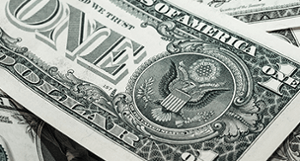 The U.S. Treasury recently announced a re-design of the $5, $10 and $20 bills after a campaign to feature historical female figures gained widespread public support. While headlines focus on the news that Harriet Tubman will be the first female to make her debut on the front of a US bill in over a century; I gladly took this as a sign from the public of their continued support for cash. Plus, with the designs not set for completion, let alone circulation until 2020 at the very earliest; the U.S. Treasury’s investment in cold hard cash is obviously an indicator of its continued place in the U.S. economy.
The U.S. Treasury recently announced a re-design of the $5, $10 and $20 bills after a campaign to feature historical female figures gained widespread public support. While headlines focus on the news that Harriet Tubman will be the first female to make her debut on the front of a US bill in over a century; I gladly took this as a sign from the public of their continued support for cash. Plus, with the designs not set for completion, let alone circulation until 2020 at the very earliest; the U.S. Treasury’s investment in cold hard cash is obviously an indicator of its continued place in the U.S. economy.
We have all seen the headlines, “The Political War on Cash” or “Why Killing Cash Makes Sense” each warning of a cashless society hiding just around the corner, but just how accurate of a picture is this? Well, if you are to believe a source like the U.S Treasury, then the answer is that consumers will still have cash in their pockets for many more years to come.
 Of course, working at Tellermate I have a vested interest in cash – so let’s take a look at the facts. A 2015 survey by CardTronics found that cash is “still prominent in [the] payments landscape”. Shortly before this, The Federal Reserve Bank of San Francisco stated that “cash continues to play a key role in consumer spending”. UK authorities, such as the Bank of England and banknote printer De La Rue echoing the sentiment that “cash is king”, the reality of a cashless society appears far-fetched, not just for the US, but for some of the biggest economies in the world.
Of course, working at Tellermate I have a vested interest in cash – so let’s take a look at the facts. A 2015 survey by CardTronics found that cash is “still prominent in [the] payments landscape”. Shortly before this, The Federal Reserve Bank of San Francisco stated that “cash continues to play a key role in consumer spending”. UK authorities, such as the Bank of England and banknote printer De La Rue echoing the sentiment that “cash is king”, the reality of a cashless society appears far-fetched, not just for the US, but for some of the biggest economies in the world.
Even countries such as Sweden, who are widely considered pioneers in the move towards a cashless society have faced widespread criticism. Reports that Sweden’s central bank is putting the brakes on the cash-free society have echoed concerns that the move towards cashless is mainly driven by politics, not the public.
With more than a million responses to the proposed changes to the design of the US bills, it is clear that the US public has not fallen out of love with cash just yet.
For consumers, the benefits lie in its simplicity. It is easy to use, easy to access, and possibly most importantly, it is reliable. No need to worry about credit card fraud if you’re using cash.
For businesses, it is likely that cash registers will continue to ring for many years to come. This means that managing cash – counting it, preparing it for deposit, and ensuring that change is available will remain a big challenge for businesses. Luckily, I have just the solution, take a look at this…